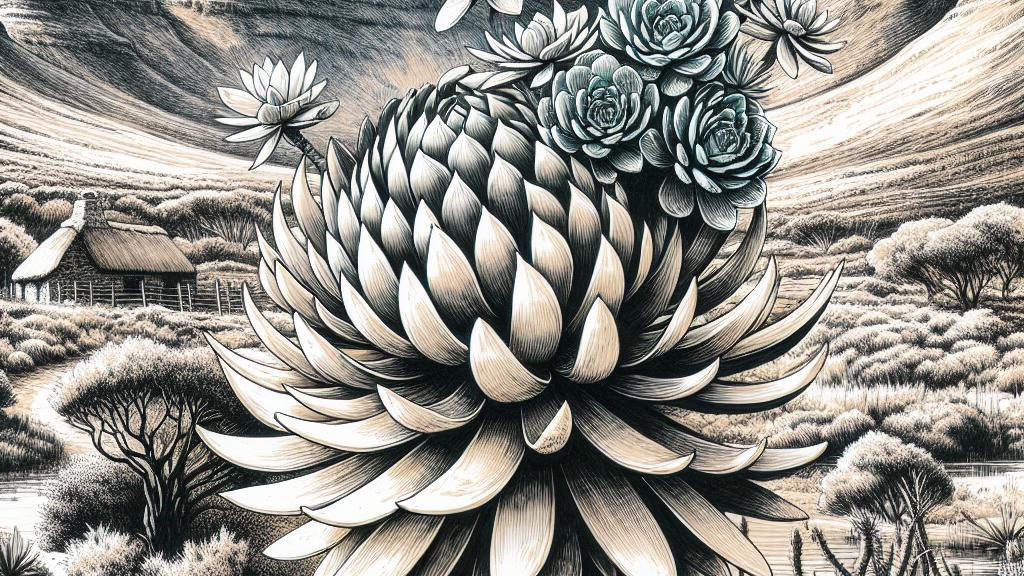Understanding the Threat to South Africa's Unique Succulent Plants
Overview
- South Africa's succulent plants are facing devastating threats from poaching.
- The explosive illegal trade is driven by immense global demand for rare specimens.
- Local communities are struggling with economic hardships and social disruption as a result.

The Crisis in the Karoo
Nestled in the breathtaking landscapes of South Africa, the Succulent Karoo desert is renowned for its remarkable biodiversity and, unfortunately, the alarming plight of its succulent plants. These fascinating flora, adept at storing water, have captivated plant enthusiasts worldwide. As a local farmer passionately declared, 'It's not just a crime against nature; it's a theft of our identity and way of life.' This crisis threatens not only the existence of these rare plants but also the entire cultural heritage of the communities that call this land home.
Impact of High Demand
The surge in poaching incidents can largely be attributed to the COVID-19 pandemic's fallout in 2020. With international travel restrictions in place, buyers turned their attention to local sources for these exotic succulents. For instance, one nursery curator observed, 'During lockdown, gardening became a popular hobby, often providing solace for many, which inadvertently fueled the demand for wild specimens.' This unexpected turn of events transformed poaching into a lucrative, albeit illegal, source of income for desperate families living on the brink of financial crisis.
The Role of Organized Crime
Sadly, this rising demand has piqued the interest of organized crime syndicates, further complicating the issue. Armed with online marketing prowess, they promote these plants as 'extraordinary treasures from Africa,' sparking a frenzied desire among collectors. As a consequence, local ecosystems are being ravaged; species that took centuries to evolve risk vanishing forever in mere weeks. Some poachers, described as 'simple men turned into criminals,' use everyday tools to uproot these succulents, completely unaware of the irreversible damage they're causing to their environment and community.
Community and Conservation Responses
In response to this escalating threat, various stakeholders—including conservationists, local leaders, and government officials—are uniting to combat poaching and promote awareness. With urgency, advocates remind consumers, 'Buying wild succulents contributes to their decline; consider the implications before making a purchase.' Initiatives such as social media campaigns and local workshops aim to educate communities about the necessity of preserving these unique plants. Furthermore, government-led outreach programs are instilling a sense of environmental stewardship. 'Each of us has a role to play in this fight; safeguarding our natural treasures is essential for future generations,' states an impassioned local activist. The journey to create a sustainable future for South Africa's succulent plants is undoubtedly challenging, but with collective action, hope remains alive.

Loading...